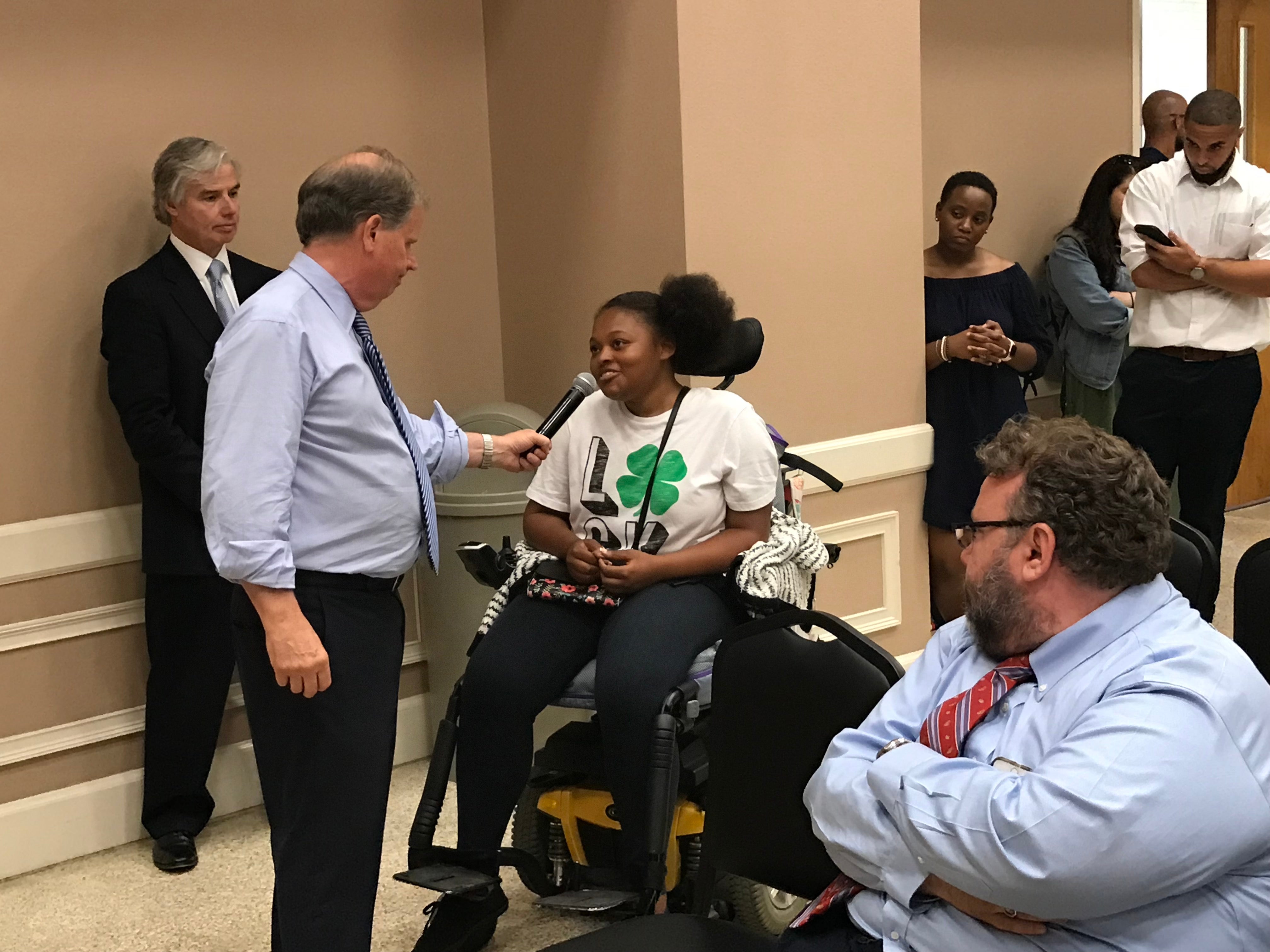TOWN HALL: Jones visits Troy University to talk issues
Published 3:00 am Wednesday, September 4, 2019
Sen. Doug Jones called for politicians to “come out of their corners” to find bipartisan solutions to political issues during a town hall at the Troy University campus Tuesday.
Jones spoke on several topics during the event, which was largely question-and-answer with students and faculty as well as some members of the general public. Among the issues discussed by Jones were gun violence, healthcare, education and immigration.
In response to several recent mass shootings, Jones said politicians cannot continue to focus on politics while looking for a solution on gun violence.
“We’ve got to come out of our corners and not insist and everything or nothing,” Jones said. “We need to pass legislation that will protect the rights of gun owners while reducing the amount of gun deaths in this country. Nobody practicing their second amendment rights and legally owning a gun should have to worry about their rights being violated; but I think there are some common sense things we can do to reduce gun violence.”
Jones pointed to a bipartisan effort after the Parkland shooting that led to allowing the CDC to study gun violence deaths. Now Congress just needs to join together again to provide funding for the CDC to follow through on that research, Jones said.
“I don’t believe mental health is the only problem, but I think that’s a part of it. The CDC needs to look at these deaths the same way they look at automobile crashes, product liabilities and other deaths. We have 40,000 gun deaths each year and more than 25,000 of those are suicides. We have got to do something about that.”
Jones added that “thoughts and prayers” are not enough to protect innocent lives.
“The Lord does a lot for us, but there are some things we’ve got to do ourselves,” Jones said.
When asked about the conditions at the border, Jones said there is “a lot of misinformation on both sides,” but that some of the recent happenings at the border are “unconscionable and are not who we are.”
“We need to treat people as human beings and get politics out of this,” Jones said. “It’s difficult because there is misinformation on both sides. You have to sift through agendas to get the right information.”
Jones said a bipartisan emergency bill has brought more funding and resulted in “not good, but better” conditions at the border and that the U.S. needs to work with Central American countries to “invest in our neighbors.”
Most immigrants are not coming for jobs, Jones told the crowd, but are fleeing from something in their home countries. Fixing those problems would help curb immigration, he said. Jones said that some illegal immigrants though are not coming to the U.S. with good intentions.
“Some are trying to use the flood of refugees for their benefit, for drug trafficking or human trafficking or other crimes” Jones said. “We have to penetrate that. They’re not the overwhelming majority of immigrants, but those people, especially those people using children, should be punished to the fullest extent of the law.”
Jones also expressed his stance that Alabama should expand Medicare and highlighted the issues of maternal and infant mortality in the state and the decline of rural hospitals. After Alabama passed a bill that would criminalize abortion, Jones said he became involved in several bills that would support mothers and help reduce those rates.
Medicare for all is not likely viable, Jones said, but he lent his support to the Affordable Care Act continuing as a framework for healthcare with a desire to develop a public option on healthcare.
He also focused on Alabama’s contributions to the nation’s military. “I wish everyone could realize how important Alabama is to our military,” Jones said.
Jones said China and Russia pose real threats to American security and more modernization is needed to ensure the defense of the country, including on the relatively new battlefront of space.
With a crowd of college students present, Jones also touched on a bill he is working on to simplify the FASFA so that students can receive federal aid more easily.
“It’s stunning how many kids in Alabama just do not go forward with federal funds,” Jones said. “(The FAFSA) is awful, it’s just awful. We’re trying to get it down to about 25 questions. I think we can do it.”




